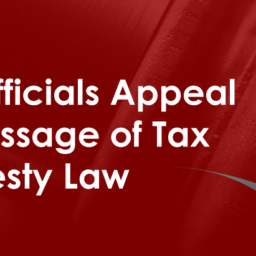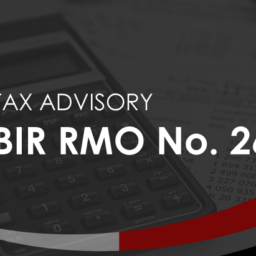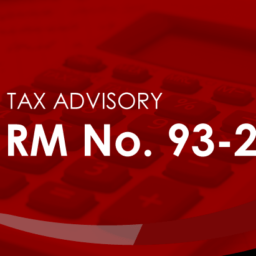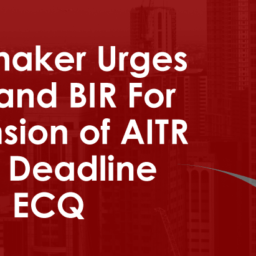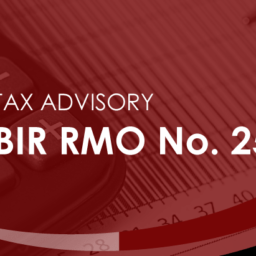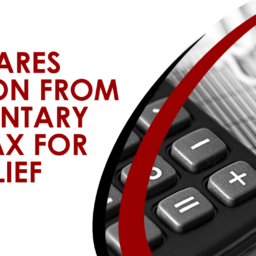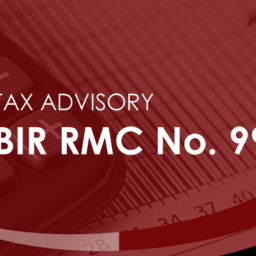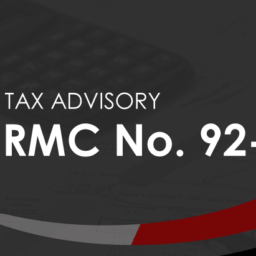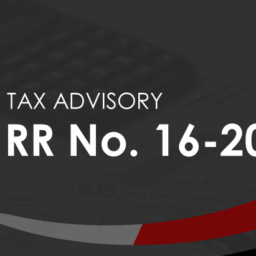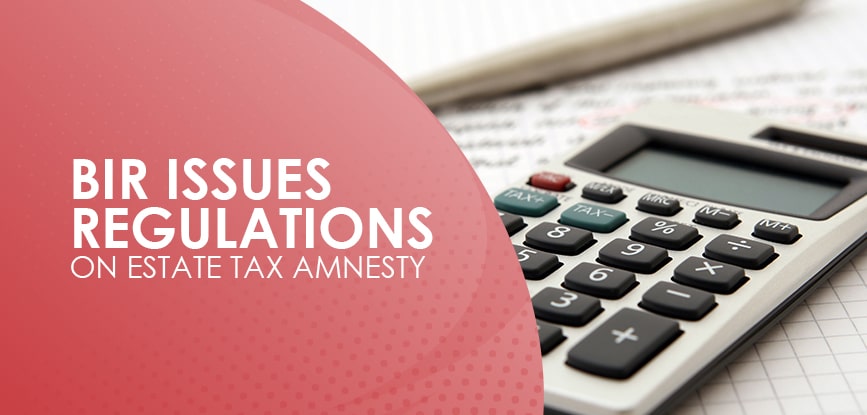
BIR Issues Regulations on Estate Tax Amnesty
The Bureau of Internal Revenue (BIR) released its latest issuance for heirs of decedents with outstanding estate tax liabilities on May 29, 2019. Through these regulations, the Department of Finance (DOF) aims to collect P6 billion worth of unpaid taxes from inheritors in the Philippines.
Signed by Finance Secretary Carlos G. Dominguez, Revenue Regulation (RR) No. 6-2019 cuts the amount of payment or accruement to settle tax liabilities for heirs of decedents who died on or before December 31, 2017 with or without assessments duly issued. BIR will start accepting applications for the estate tax amnesty program on June 17.
The latest issuance implements the latest provisions for Republic (RA) No. 11213, also known as the “Tax Amnesty Act of 2019” or Tax Amnesty Act.
What is RR No. 6-2019?
RR No. 6-2019 provides taxpayers with a one-time opportunity to settle their tax obligations through an estate tax amnesty program that will give them reasonable tax relief to the estate with outstanding tax liabilities.
Under the latest regulations, the BIR will impose a 6% tax amnesty rate for the decedent’s total net taxable estate at the time of their deaths without any penalties at each stage of property transfer. For each decedent, the minimum estate amnesty tax for the transfer of estate shall be P5,000.
According to the latest issuance, the amnesty applies to the estate of decedents but does not extend to the following tax liabilities and properties:
- Delinquent estate tax liabilities which have become final and executory and those covered by Tax Amnesty on Delinquencies; and
- Properties involved in cases pending in appropriate courts:
- Falling under the jurisdiction of the Presidential Commission of Good Government (PCGG);
- Involving unexplained or unlawfully acquired wealth under RA No. 3019, also known as the “Anti-Graft and Corrupt Practices Act,” and RA No. 7080 or the “Act Defining and Penalizing the Crime of Plunder”;
- Involving tax evasion and other criminal offenses under Chapter II of Title X of the National Internal Revenue Code (NIRC) of 1997, as amended; and
- Involving felonies of fraud, illegal exactions and transactions and malversation of public funds and property under Chapters III and IV of Title VII of the Revised Penal Code.
RR No. 6-2019 gives taxpayers two years to file their Estate Tax Amnesty Return (BIR Form No. 2118-EA) in three copies at their respective Revenue District Office (RDO). However, if the decedent did not legally reside in the Philippines, the taxpayer must submit the related tax return at RDO 399 (South Quezon City). The computation of the gross estate’s value will depend on the fair market value of the said property at the time of death of the decedent.
BIR Issues Regulations on Estate Tax Amnesty
The Bureau of Internal Revenue (BIR) released its latest issuance for heirs of decedents with outstanding estate tax liabilities on May 29, 2019. Through these regulations, the Department of Finance (DOF) aims to collect P6 billion worth of unpaid taxes from inheritors in the Philippines.
Signed by Finance Secretary Carlos G. Dominguez, Revenue Regulation (RR) No. 6-2019 cuts the amount of payment or accruement to settle tax liabilities for heirs of decedents who died on or before December 31, 2017 with or without assessments duly issued. BIR will start accepting applications for the estate tax amnesty program on June 17.
The latest issuance implements the latest provisions for Republic (RA) No. 11213, also known as the “Tax Amnesty Act of 2019” or Tax Amnesty Act.
What is RR No. 6-2019?
RR No. 6-2019 provides taxpayers with a one-time opportunity to settle their tax obligations through an estate tax amnesty program that will give them reasonable tax relief to the estate with outstanding tax liabilities.
Under the latest regulations, the BIR will impose a 6% estate tax amnesty rate for the decedent’s total net taxable estate at the time of their deaths without any penalties at each stage of property transfer. For each decedent, the minimum estate amnesty tax for the transfer of estate shall be P5,000.
According to the latest issuance, the amnesty applies to the estate of decedents but does not extend to the following tax liabilities and properties:
- Delinquent estate tax liabilities which have become final and executory and those covered by Tax Amnesty on Delinquencies; and
- Properties involved in cases pending in appropriate courts:
- Falling under the jurisdiction of the Presidential Commission of Good Government (PCGG);
- Involving unexplained or unlawfully acquired wealth under RA No. 3019, also known as the “Anti-Graft and Corrupt Practices Act,” and RA No. 7080 or the “Act Defining and Penalizing the Crime of Plunder”;
- Involving tax evasion and other criminal offenses under Chapter II of Title X of the National Internal Revenue Code (NIRC) of 1997, as amended; and
- Involving felonies of fraud, illegal exactions and transactions and malversation of public funds and property under Chapters III and IV of Title VII of the Revised Penal Code.
RR No. 6-2019 gives taxpayers two years to file their Estate Tax Amnesty Return (BIR Form No. 2118-EA) in three copies at their respective Revenue District Office (RDO). However, if the decedent did not legally reside in the Philippines, the taxpayer must submit the related tax return at RDO 399 (South Quezon City). The computation of the gross estate’s value will depend on the fair market value of the said property at the time of death of the decedent.


